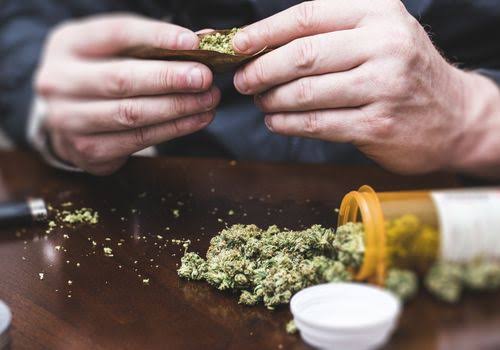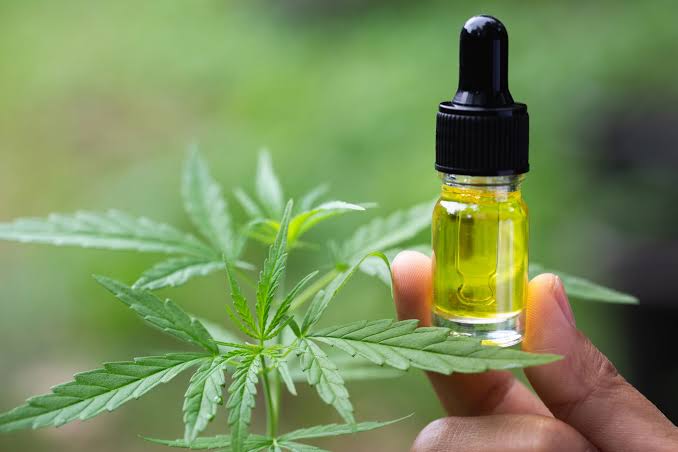Cannabidiol (CBD) and delta-9-tetrahydrocannabinol (THC) are two of the many distinct cannabinoids found in marijuana, and they are both beneficial. When ingested, CBD and THC interact with cannabinoid receptors in the body, assisting in the treatment or reduction of the symptoms of a variety of illnesses.
There are hundreds of cannabinoid receptors located throughout the human body, each of which is responsible for a different physiological effect. These cannabinoids have the potential to be used in the treatment of the following conditions:
- pain
- nausea
- cancer
- appetite loss and eating disorders
- Alzheimer’s disease
- glaucoma
- multiple sclerosis
- muscle spasms
The most notable distinction between CBD and THC is the absence of psychoactive effects in CBD, which does not typically result in the typical marijuana high associated with THC.
In this post, we will go through the differences between CBD and THC in further detail.
Is Cannabidiol (CBD) legal? CBD products derived from hemp that contain less than 0.3 percent THC are allowed under federal law, but they are still banned under several state regulations. CBD-derived products manufactured from cannabis, on the other hand, are prohibited under federal law but allowed under some state regulations. When travelling, especially in foreign countries, always sure to check local legislation. It’s also important to remember that the Food and Drug Administration (FDA) has not approved nonprescription CBD products, which may be labelled incorrectly.
Health benefits
When it comes to treating medical issues, CBD and THC seem to be very similar. Despite this, there is some variety in the applications of each compound.
In most cases, CBD is used to treat or prevent the following conditions:
- inflammatory bowel disease
- seizures
- depression
- inflammation
- psychosis or mental disorders
- migraines
THC has the potential to be used to treat a variety of conditions, including the following:
- glaucoma
- muscle spasticity
- low appetite
- insomnia
People may utilise either to aid in the treatment of the following conditions:
- pain
- anxiety
- nausea
Differences
There are some significant differences between CBD and THC, despite the fact that both are found in marijuana and both interact with the endocannabinoid system. These differences include:
Experience high

Despite the fact that they are both cannabinoids, CBD and THC interact with receptors in the brain in slightly different ways.
As a result, CBD is unlikely to cause an individual to become high. THC, on the other hand, is responsible for the high that people associate with marijuana use for recreational purposes.
Cannabis used for medical purposes that is CBD-dominant has very little THC in its formula. As a result, when taking the drug, a person will not experience any intoxicating effects.
When a person consumes medical marijuana that contains THC, they will feel high as a result of the medication.
Where do they originate from?
Marijuana contains both CBD and THC in varying amounts.
When a person consumes a medical marijuana product that contains a high concentration of CBD, they are consuming CBD derived from hemp, which is closely linked to marijuana.
THC is derived from the marijuana plant, and it is extracted from the plant in order to use it.
Legal status
Many states in North America have allowed the use of medical marijuana, at least in restricted quantities, by patients with certain medical conditions.
Each state has a slightly different definition and regulatory framework for the legal use, prescription, and sale of marijuana.
There is currently no federal law providing for the legal use of medical marijuana in the United States. A consequence of this is that it is unlawful to use or prescribe medical marijuana in any state that does not have legislation allowing for its use.
There are now several states that have legalised the use of marijuana for recreational reasons. Recreational marijuana use is illegal in the United States, just as it is for medical purposes.
Before getting medical marijuana, a person should research the legislation in their state of residence. Obtaining or consuming marijuana for medical or any other purpose may result in legal consequences if the state does not explicitly permit its usage in that particular instance.
The laws governing the use of marijuana for medical and recreational purposes are developing at a rapid pace. A person who is considering the use of CBD or THC should check their local regulations on a frequent basis, since they may have changed or are in the process of being changed.
Side effects
When it comes to CBD or THC, there are very few negative side effects.
In fact, there are no known adverse effects associated with CBD. WHO states that CBD is safe in big doses, and that the only potential negative effects are likely to be caused by interactions with other medications a person may be taking at the time of consumption.
It is possible that a person who consumes THC will have some temporary negative effects. These can include the following:
- dry mouth
- red eyes
- slower than average response times
- a general feeling of being high
- memory loss
- problems with coordination
- increased heart rate
Teenagers, in particular, may face negative psychiatric consequences as a result of using drugs. This could be due to the fact that the brain of a teenager is still developing.
According to some study, taking THC on a regular basis or in excessive dosages can raise the risk of developing schizophrenia in some people who are genetically predisposed to the disorder.
Neither CBD nor THC appear to have any harmful side effects that are worth mentioning. Neither of these medications can be fatal if used as directed. Furthermore, those who use THC for recreational purposes do not appear to be at risk of developing an addiction to it.
Ways to make use of them

A large number of people choose to smoke or vape marijuana or CBD, but this may not be an option for those who suffer from certain medical issues.
CBD is available in a number of different forms. These are some examples:
- gels
- supplements
- gummies
- oils
THC can also be found in a variety of other forms, including:
- smokable products
- oils
- tinctures
- edibles, such as brownies
- capsules
Conclusion
Cannabinoids such as CBD and THC are both found in marijuana.
Despite the fact that they are comparable in terms of what they may be able to assist treat, the most significant distinction is that THC will cause a person to feel “high,” whilst CBD will not.
It is critical for consumers to get informed with their local laws before acquiring and utilising CBD or THC in any capacity.
Both CBD and THC are still considered illegal chemicals by the federal government, and they are only authorised for medical or recreational use in specific states.
Sources
- https://www.who.int/medicines/access/controlled-substances/5.2_CBD.pdf
- https://www.medicalnewstoday.com/articles/325871
- https://www.uclahealth.org/cannabis/human-endocannabinoid-system
- http://www.drugpolicy.org/issues/medical-marijuana
- https://academic.oup.com/hmg/article/26/13/2462/3574683






